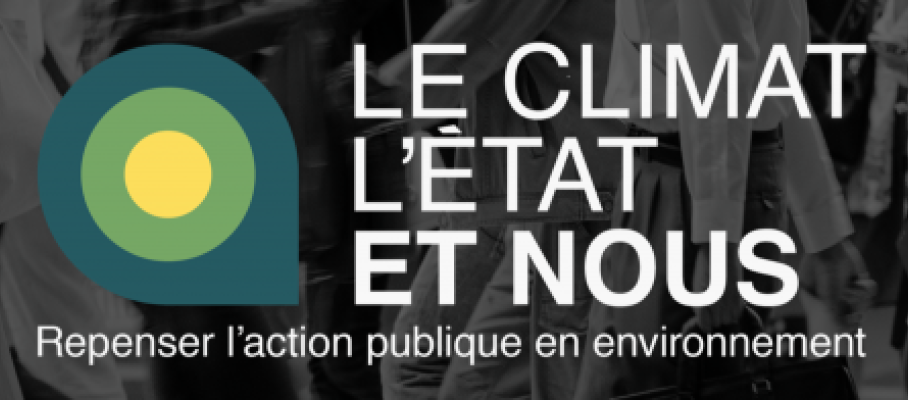Le climat, l'État et nous
Repenser l'action publique en environnement


Le Québec a des lois, des institutions et des stratégies nationales pour agir sur les enjeux environnementaux. Malheureusement, les résultats ne sont pas au rendez-vous : avec les structures en place, le Québec est incapable d’atteindre ses objectifs de réduction de gaz à effet de serre, de transition ou de développement durable.
Comment faire pour que le Québec puisse relever ses défis et travailler à améliorer le quotidien de tous ses citoyennes et citoyens? C’est la question que s'est posée en 2017 un groupe d'experts indépendants, avec le soutien de l’Institut de l’énergie Trottier, du scientifique en chef du Québec et de l’Institut du Nouveau Monde.
Après avoir fait l'état des lieux du modèle actuel de gouvernance environnementale, le groupe d'experts a déposé une proposition pour réformer celui-ci. Cette proposition a ensuite été soumise à l'examen à la population, et débattue lors d'un forum national. L'initiative a enfin abouti en 2018 a une Déclaration commune, que de nombreux signataires (citoyens, mais aussi associations citoyennes et professionnelles, groupes d’affaires, centrales syndicales, organisations écologistes, universitaires et de scientifiques) ont endossée.
Suite à la pandémie de Covid-19 de 2020-2023, des membres de l’initiative Le climat, l’État et nous se sont réunis pour proposer en 2020 quatre principes-cadres qui devraient guider l’élaboration du plan de relance.